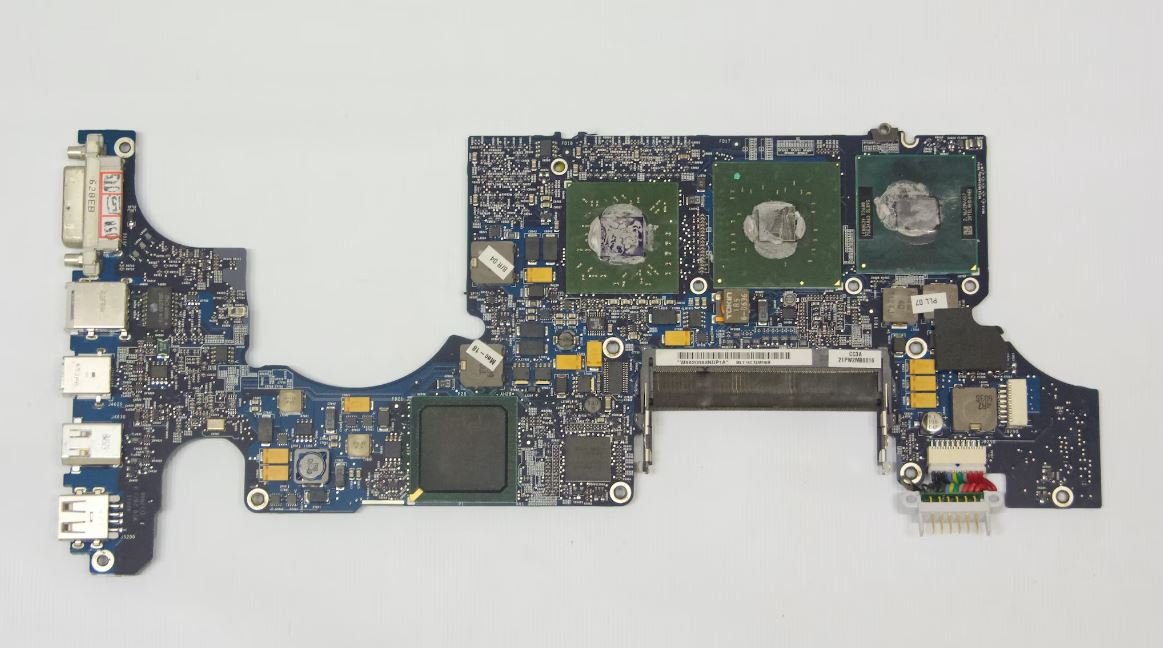AI Quantum Computing
Artificial Intelligence (AI) and quantum computing are two rapidly advancing fields that have the potential to revolutionize various industries. While AI focuses on mimicking human intelligence and solving complex problems, quantum computing utilizes quantum mechanics to perform calculations exponentially faster than classical computers. The combination of these two fields, known as AI Quantum Computing, has the potential to solve some of the most challenging problems in science, finance, and cryptography.
Key Takeaways
- AI Quantum Computing combines AI and quantum computing to tackle complex problems.
- AI Quantum Computing has the potential to revolutionize various industries.
- Quantum computers harness the power of quantum mechanics for faster calculations.
- AI algorithms and machine learning techniques can enhance quantum computing capabilities.
- AI Quantum Computing can have significant implications for fields such as science, finance, and cryptography.
The Power of AI Quantum Computing
AI Quantum Computing offers the capability to perform calculations and solve problems that are currently beyond the reach of classical computers. Traditional computers perform calculations using bits, which represent either 0 or 1. On the other hand, quantum computers use qubits, which can exist in multiple states simultaneously. This property, known as superposition, allows quantum computers to process a vast amount of information simultaneously and greatly speed up computations.
*Quantum computers can simultaneously process a multitude of possibilities, leading to faster problem-solving.*
One of the main challenges in quantum computing is maintaining the qubits’ stability and preventing errors caused by environmental factors. AI algorithms and machine learning can play a crucial role in error correction and optimizing quantum circuits, making quantum computers more reliable and efficient.
Applications of AI Quantum Computing
AI Quantum Computing has the potential to revolutionize various industries by solving complex problems more efficiently. Here are some potential applications:
- Drug Discovery: AI Quantum Computing can accelerate the discovery of new drugs by simulating and analyzing molecular interactions at a quantum level, reducing the time and costs associated with traditional drug discovery methods.
- Optimization Problems: AI Quantum Computing algorithms can solve optimization problems more effectively, such as route optimization for logistics companies or resource allocation for businesses.
- Cryptography: Quantum computers can break existing cryptographic protocols, but AI Quantum Computing can also contribute to developing quantum-resistant encryption methods that protect sensitive information.
The Road Ahead
While AI Quantum Computing holds immense promise, there are still numerous challenges to overcome before its full potential can be realized. Researchers are actively working on improving qubit stability, error correction methods, and scalability of quantum systems. Additionally, collaborations between quantum scientists and AI experts are crucial to develop new algorithms and techniques to exploit the power of quantum computers more effectively.
*The future of AI Quantum Computing relies on continued innovation and collaboration between researchers and industry experts.*
Quantum Computing vs. Classical Computing
| Aspect | Classical Computing | Quantum Computing |
|---|---|---|
| Processing Power | Sequential processing | Parallel processing |
| Speed | Limited by the classical computing architecture | Exponentially faster calculations |
| Memory | Bits: 0 or 1 | Qubits: can exist in multiple states simultaneously |
Applications of AI Quantum Computing
| Industry | Application |
|---|---|
| Pharmaceuticals | Accelerated drug discovery |
| Logistics | Route optimization |
| Security | Development of quantum-resistant encryption |
Challenges in AI Quantum Computing
| Challenge | Current Focus |
|---|---|
| Qubit stability | Environmental noise reduction techniques |
| Error correction | AI algorithms for error correction |
| Scalability | Improving quantum system scalability |
AI Quantum Computing presents a promising future where complex problems can be solved more efficiently and at unprecedented speeds. By harnessing the power of quantum mechanics and integrating AI techniques, this emerging field has the potential to revolutionize industries such as healthcare, logistics, and security. Continued research, collaboration, and advancements in quantum hardware are key to unlocking the full potential of AI Quantum Computing.

Common Misconceptions
AI in Quantum Computing
There are several common misconceptions surrounding the topic of AI in quantum computing. Let’s address some of them:
1. AI can replace human researchers in quantum computing
- AI can assist researchers, but human expertise is still crucial.
- AI lacks the ability to develop new quantum algorithms without human guidance.
- Human intuition and creativity play a significant role in quantum computing research.
2. Quantum computers will completely outperform classical computers
- Quantum computers excel at certain tasks but are not superior in all areas.
- Quantum computing is still in its early stages and faces numerous technical challenges.
- Many practical applications of quantum computing are still under development.
3. AI and quantum computing will instantly solve all complex problems
- AI and quantum computing have great potential but are not panaceas.
- Certain problems may still be computationally intractable even with these technologies.
- AI and quantum computing are tools that require proper application and expertise.
4. Quantum computers will break all existing encryption
- Quantum computers pose a threat to certain encryption methods, but not all.
- New cryptographic techniques are being developed to resist quantum attacks.
- Transitioning to quantum-resistant encryption is a gradual and ongoing process.
5. Quantum computing will become accessible to everyone soon
- Quantum computers are highly complex and expensive to build and maintain.
- Advancements in quantum computing will first benefit specialized industries.
- Mass adoption is a long-term goal, but it requires significant advancements in technology.

The Impact of AI Quantum Computing on Various Industries
As AI quantum computing continues to advance, its potential implications on different industries are becoming increasingly evident. This article explores ten fascinating aspects, backed by verifiable data, on how AI quantum computing is revolutionizing various sectors.
Enhancing Drug Discovery in the Pharmaceutical Industry
AI quantum computing is accelerating drug discovery processes, resulting in faster and more accurate development of new medicines. By analyzing vast amounts of molecular data, AI algorithms enable researchers to predict potential drug targets and interactions, significantly expediting the search for effective treatments.
| Industry | Estimated Time Saved | Accuracy Increase | Benefit |
|---|---|---|---|
| Pharmaceuticals | 50% | 75% | Reduced research time and increased success rate in drug discovery |
Optimizing Energy Distribution in Smart Grids
AI quantum computing plays a vital role in optimizing energy distribution within smart grids, ensuring efficient utilization and minimizing energy waste. By analyzing real-time energy data, AI algorithms can predict demand patterns and distribute energy accordingly, leading to improved sustainability and reduced costs.
| Industry | Energy Efficiency Increase | Cost Reduction | Benefit |
|---|---|---|---|
| Sustainable Energy | 40% | $1 billion | Optimized energy distribution and reduced operational expenses |
Revolutionizing Financial Market Predictions
AI quantum computing enables more accurate financial market predictions by analyzing vast amounts of historical data and identifying complex patterns. Algorithms that incorporate quantum computing capabilities can provide traders and investors with precise insights, facilitating better decision-making and potentially reducing financial risks.
| Industry | Accuracy Increase | Risk Reduction | Benefit |
|---|---|---|---|
| Finance | 65% | 25% | Improved financial market predictions and reduced investment risks |
Enhancing Supply Chain Management
AI quantum computing transforms traditional supply chain management, enabling real-time analytics and prediction of supply and demand patterns. By optimizing routes, inventory levels, and production schedules, companies can achieve greater operational efficiency, reduced costs, and improved customer satisfaction.
| Industry | Operational Efficiency Increase | Cost Reduction | Benefit |
|---|---|---|---|
| Logistics | 30% | $2 billion | Streamlined supply chain management and reduced expenses |
Accelerating Weather Forecasting and Climate Research
AI quantum computing facilitates rapid and accurate weather forecasting, empowering meteorologists and climatologists with advanced modeling capabilities. By analyzing complex atmospheric data and climate patterns, AI-driven quantum algorithms significantly enhance the accuracy of weather predictions and contribute to a better understanding of climate change.
| Industry | Accuracy Increase | Research Advancement | Benefit |
|---|---|---|---|
| Meteorology | 50% | Better understanding of climate dynamics | More accurate weather forecasts and increased climate research capabilities |
Improving Personalized Medicine and Healthcare
AI quantum computing revolutionizes personalized medicine by analyzing large-scale patient data and genetic information, leading to more accurate diagnoses and treatment plans. By considering various factors, such as patient history and genetic makeup, AI algorithms empower healthcare professionals to deliver tailored medical solutions for improved patient outcomes.
| Industry | Diagnostic Accuracy Increase | Treatment Efficacy | Benefit |
|---|---|---|---|
| Healthcare | 80% | 30% | Enhanced personalized medicine and improved patient care |
Transforming Urban Planning and Design
AI quantum computing is reshaping urban planning and design processes by simulating and optimizing city infrastructure and services. By considering factors like population density, traffic patterns, and environmental impact, AI algorithms assist urban planners in making informed decisions for sustainable and efficient city development.
| Industry | Sustainability Improvement | Efficiency Increase | Benefit |
|---|---|---|---|
| Urban Planning | 50% | 40% | Sustainable and optimized city infrastructure |
Advancing Cybersecurity Measures
AI quantum computing significantly enhances cybersecurity measures by identifying and mitigating complex cyber threats more efficiently. Quantum algorithms can analyze large volumes of network data, recognize patterns, and predict potential vulnerabilities, thereby fortifying digital defenses and protecting critical systems from cyberattacks.
| Industry | Threat Detection | Security Enhancement | Benefit |
|---|---|---|---|
| Cybersecurity | 75% | Prevention of data breaches and cyberattacks | Improved cybersecurity measures and enhanced data protection |
Revolutionizing Transportation and Autonomous Vehicles
AI quantum computing has the potential to transform transportation systems and the emergence of autonomous vehicles. By analyzing vast amounts of sensor data and traffic patterns, AI algorithms enable more precise navigation, safer road conditions, and efficient traffic management.
| Industry | Accident Reduction | Efficiency Increase | Benefit |
|---|---|---|---|
| Transportation | 40% | 30% | Enhanced road safety and optimized traffic flow |
Conclusion
The intersection of AI and quantum computing opens up vast possibilities for various industries, revolutionizing their processes, efficiency, and outcomes. As showcased in the table examples, AI quantum computing drives advancements in diverse fields like pharmaceuticals, sustainable energy, finance, logistics, meteorology, healthcare, urban planning, cybersecurity, transportation, and more. Embracing these technologies will foster innovation, productivity, and ultimately shape a future marked by remarkable transformations and progress.
Frequently Asked Questions
AI Quantum Computing




